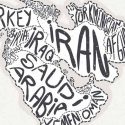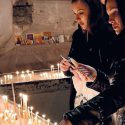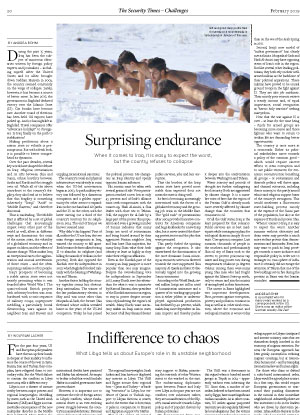When it comes to Iraq, it is easy to expect the worst, but the country refuses to collapse
During the past 15 years, Iraq has been the subject of numerous obituaries written by foreign policy experts and journalists – including myself. After the United States and its allies brought down Saddam Hussein in 2003, the country seemed constantly on the verge of collapse. Lately, however, it has become a source of better news. In late 2017, the government in Baghdad declared victory over the Islamic State (IS). Car bombs have become rare. Another round of elections has been held. Oil exports have picked up. And so has nightlife in Baghdad. Travel companies offer “adventure holidays” to foreigners. Is Iraq finally on the path to stabilization?
Making predictions about a nation state so volatile is presumptuous. But with a fresh look, it is possible to better comprehend its dynamics.
Over the past decades, several key words have shaped the debate on Iraq: religious sectarianism and its rifts between Shia and Sunni, ethnic hostility between Arabs and Kurds and the struggle over oil. While all of the above contribute to the country’s fragility, they also lead us to believe that this fragility is something inherently “Iraqi,” “Arab” or “Middle Eastern,” and therefore abnormal.
That is misleading. The Middle East is afflicted by a set of global challenges that increasingly impact every other part of the world as well, albeit in different ways and dimensions: the crisis of the nation state, the volatility of a globalized economy and its impact on labor, and the effects of climate change. What makes Iraq an exceptional case is the agglomeration and mutual acceleration of these crises – and the often surprising resilience of its people.
Iraq’s prospects of becoming a stable nation state were not exactly promising when it was founded after World War I. The quasi-colonial British project with arbitrary borders was soon burdened with a toxic sequence of military coups, superpower meddling, a particularly brutal dictatorship, wars against its neighbors Iran and Kuwait and crippling international sanctions.
The country’s social and physical infrastructure was already in ruins when the US-led intervention began in 2003. A quick military victory was followed by a disastrous occupation and a golden opportunity for other actors to expand: Iran on the one hand and Al Qaeda and the IS on the other, with the latter carving out a third of the country’s territory for its caliphate in 2014. The end of Iraq as we know it seemed near.
Why didn’t this happen? First of all, neither the US nor Iran, the two main foreign antagonists in Iraq, wanted the country to fall apart. Both became de facto allies forcing IS to abandon its caliphate (and killing thousands of civilians in the process). Both also opposed the Kurdish vote for independence in 2017, which Baghdad blocked militarily with the blessing of Washington and Tehran.
Another factor holding the country together seems less obvious: Iraqi nationalism. The winner of the last parliamentary election in May 2018 was none other than Muqtada al-Sadr, the former Shia firebrand whose militia wreaked havoc in the years of the US-led occupation. Today he has joined the political process. He champions an Iraqi identity and openly opposes Iranian influence.
His success must be taken with several grains of salt: Voter participation reached a new low at only 45 percent and al-Sadr’s alliance must seek compromises with the runner-up, Hadi Al-Amiri, a Shia leader with close ties to Tehran. Still, the support for al-Sadr by a large part of the poorer Shia population and even a growing number of Sunnis indicates that many Iraqis are tired of sectarianism and being bossed around by their aggressive Persian neighbor. Iraq and Iran have Shia majorities, but many Iraqi Shias value their Arab identity at least as highly as they value their religious affiliation.
Even in the Kurdish part of the country, an Iraqi passport is more popular than one may imagine. Despite the overwhelming vote for independence in September 2017, many Kurds saw the referendum for what it was: a maneuver by Masoud Barzani, then-president of the Kurdish autonomous region, to stay in power despite accusations of plundering the region’s oil wealth. Many Kurds want autonomy within an Iraqi nation state, but most of all they demand decent public services, jobs and less corruption.
That the borders of the Iraqi nation state have proved more stable than expected does not mean the state is doing well.
Its fate is becoming increasingly intertwined with the forces of a globalized economy and the growing job crisis in the Middle East. The “gold rush” of privatizations after 2003 provided lucrative contracts for American companies and huge kickbacks for a new Iraqi elite, but it never created the thriving private sector and the jobs that were promised.
This partly fueled the uprising against the occupation. It also exacerbated the discrimination of the once dominant Sunni minority, as resources were now directed towards the once suppressed Shia majority. Al Qaeda and later IS dexterously tapped into the growing Sunni resentment.
According to the World Bank, several million Iraqis are still in need of humanitarian assistance and a quarter of its working-age population is either jobless or underemployed. Agricultural production has declined by 40 percent, which makes Iraq more dependent on Iranian imports and thereby pushes it deeper into the confrontation between Washington and Tehran.
Water scarcity and periods of drought are further endangering food security. Both are aggravated by climate change. It is a macabre twist of fate that the region of the Persian Gulf is already much more severely affected by climate change than the countries that consume its oil.
Of all the Gulf states, Iraq is the least prepared for that scenario. Public services are at best inadequate while contingency plans for ecological disasters simply do not exist. Corruption is rampant. Last summer, thousands of people in the southern and predominantly Shia oil city of Basra took to the streets to protest poisonous tap water and long power cuts during temperatures of almost 50 degrees Celsius. Among them were many young Shia men who had fought against the Islamic State up north, only to return and join the masses of unemployed in their hometown.
The unrest in Basra highlighted two important developments. First, protests against corruption, poverty and pollution continue in Iraq as well as in other Arab countries, where the economic and ecological situation is worse today than on the eve of the Arab Spring in 2011.
Second, Iraq’s new model of “militia governance” has clearly met its limits. Muqtada al-Sadr and Hadi Al-Amiri may have opposing views of Iran‘s role in the region. But like several other leading politicians, they both rely on their wellarmed militias as the backbone of their political aspirations. These militias have proved to be crucial ground troops in the fight against IS. They are also job machines. Their mostly poor recruits receive a steady income and, of equal importance, social recognition as “heroic holy warriors” seeking martyrdom.
Now that the war against IS is over – at least for the time being – funds for armed groups are becoming more scarce and those fighters who want to return to civilian life are demanding better opportunities.
The country is once more at a crossroads. Either its political stakeholders move towards a policy of the common good – which would require sincere efforts to stem corruption and to use public resources for economic reconstruction benefiting all groups – or sectarianism and clientele politics will thrive again and channel resources, including donor money, to the partly armed ethnic and religious support bases of the country’s strongmen. This would accelerate a Shia-centric state-building process mostly at the expense of the Sunni part of the population, but also at the expense of Kurds and poorer Shia.
When it comes to Iraq, it is easy to expect the worst. Another summer without electricity and clean water may provoke a much more violent protest than demonstrations and barricades. Even Iran may want to push its Iraqi protégés towards a more inclusive and responsible policy in order not to endanger its own sphere of influence. It certainly did not escape the attention of Tehran that one of the few buildings set on fire during the protests in Basra was the Iranian consulate.
ANDREA BÖHM
is a journalist who for many years worked as a correspondent in the US. She is now an editor at the German weekly Die Zeit.




